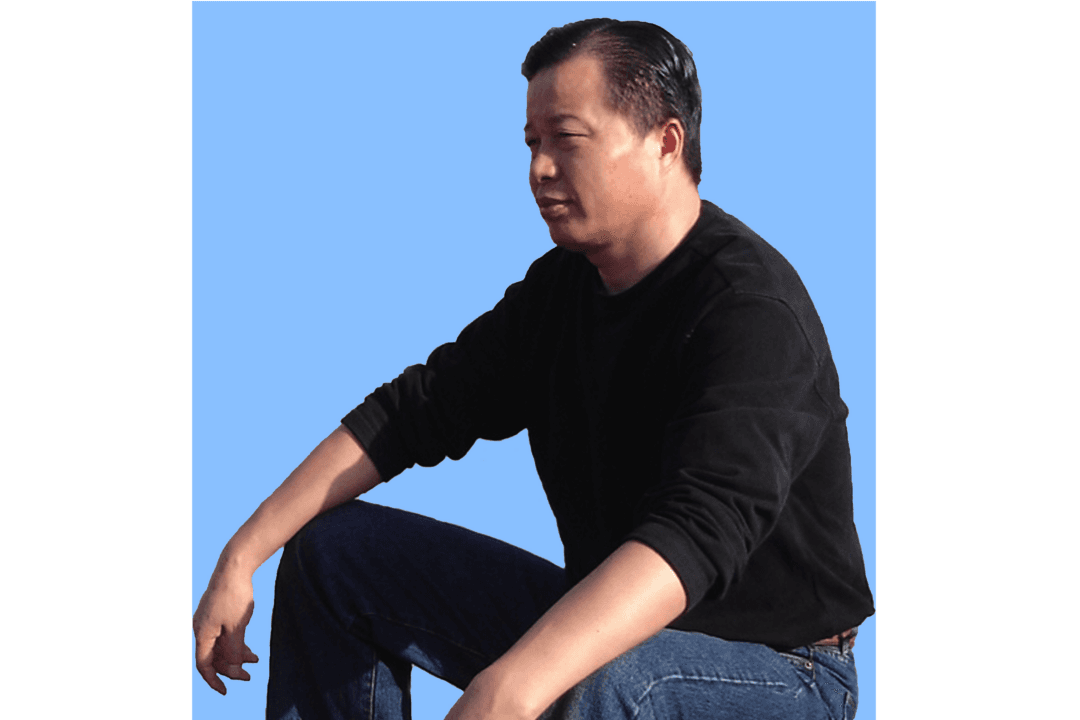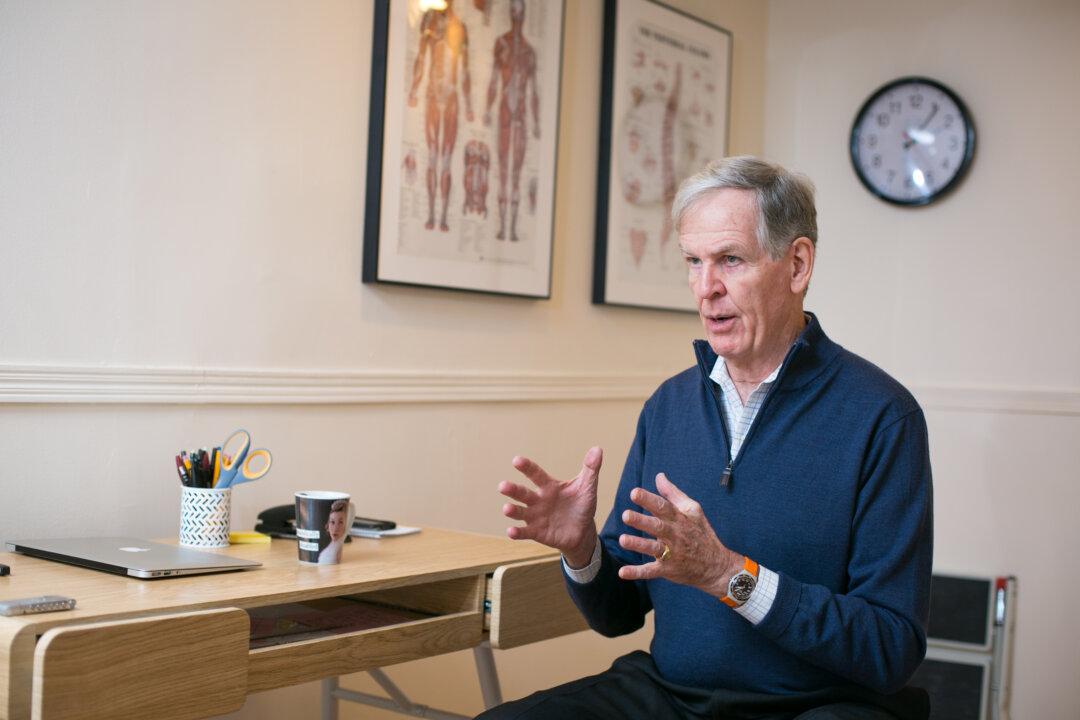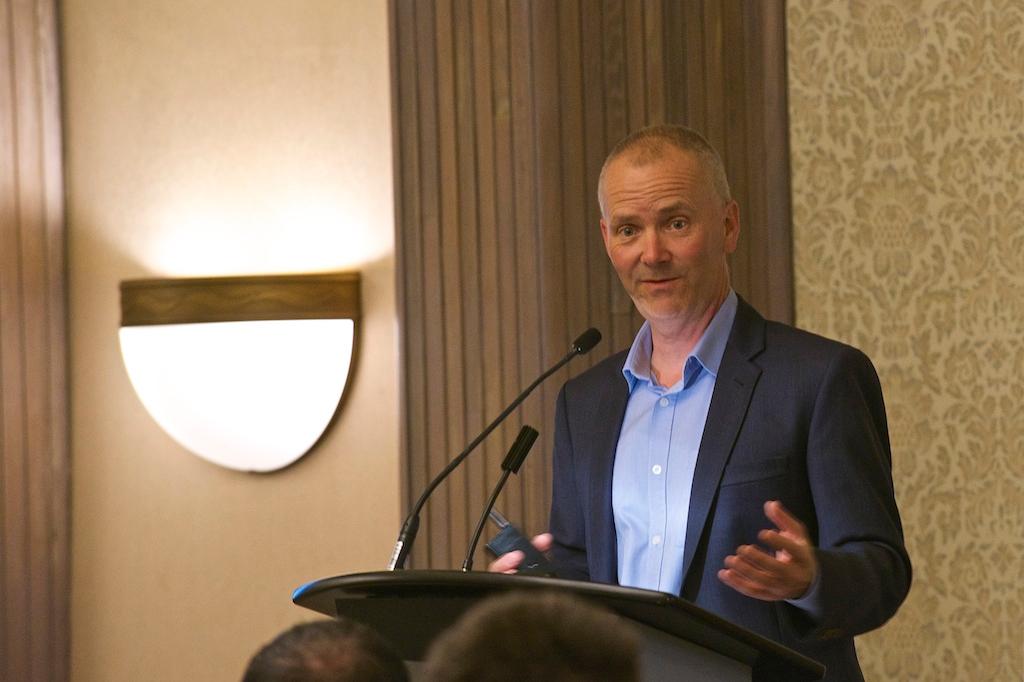OTTAWA—To transcend fear is to know the risk, expect the harm, yet to go beyond and choose to do it anyway.
The film “Transcending Fear” tells the courageous story of Chinese civil rights lawyer Gao Zhisheng who risked his life for China’s most downtrodden people such as underground Christians, victims of forced demolitions, and Falun Gong adherents.
Gao stands beside people like Nelson Mandela and Mahatma Gandhi said David Kilgour, a former Canadian MP and renowned human rights advocate in his own right.
“I think he is amazing,” Kilgour said of Gao after watching a screening of “Transcending Fear” at the Free Thinking Film Festival in Ottawa.
Gao has been nominated for the Nobel Peace Prize three times—once by Kilgour and Winnipeg-based human rights lawyer David Matas.
Gao is often called the “conscience of China” and his current plight has been raised by political leaders in Canada, the United States, Europe, and elsewhere.
Humble Beginnings
Gao was not new to struggle, and overcame exceptional odds to become one of China’s most influential and successful lawyers.
He was born in and raised in a cave in northern China, living a life of extreme poverty that got worse after his father died. It was a daily battle for survival for his mother to keep her seven children fed, and Gao left home at 15 to work in a coal mine with his brother.
Through twists and turns of peasant life, Gao eventually married and then one day, after reading on a piece of a newspaper he picked up off the ground that China would be needing 150,000 lawyers in the next 10 years, Gao began a self-study program and in 1995 he was one of the 1 percent to successfully pass the bar exam.
He spent much of his time working pro bono defending the most vulnerable: the disabled, the displaced, and the persecuted. His efforts earned him numerous awards including being named one of ten “honour lawyers” by the Ministry of Justice in 2001.
Challenging local officials is one thing, but challenging the central authority of the regime is quite another. Gao got away with defending Christians and farmers who lost their land to provincial and municipal party bosses, but then when he decided to pick up his first Falun Gong case—something no other attorney even dared to do since the spiritual discipline was officially banned in 1999—he attracted the ire of the upper echelons of the Chinese Communist Party.
Open Letters
He got nowhere with the cases, but the stories of his defendants moved him deeply. With nothing else he could do, Gao began to write open letters to then-President Hu Jintao protesting the abuse, torture, and murders he’d investigated.
“Immeasurable capital resources and police manpower are groundlessly exhausted on the suppression of Falun Gong practitioners who simply practice peacefully to cultivate their mind and improve their health. The suppression is turning the society into a chaotic place. It is an utter crime, impinging on basic human rights,” he wrote in one of the letters.
Subsequently his law office was closed and his license to practice law revoked. Surveillance increased and he and his family were followed night and day.
In response he posted the details of this repression on his websites, publicly declared himself a Christian, and resigned from the Chinese Communist Party, calling it the proudest day of his life.
Then the real trouble started.
Beginning in 2005 Gao’s family was frequently assaulted and constantly monitored. In August 2006 Gao disappeared, and in December of the same year he was charged with “inciting to subvert the state’s power.” He was sentenced to three years in prison and five years of probation.
Meanwhile, police moved into his house and monitored his wife every moment, even in the bathroom.
While on probation Gao disappeared at least six times and once went missing for 20 months. Each time he was tortured. He wrote in another open letter about a 50-day stint of torture that he underwent.
“Then, the electric shock batons were thrust all over me. And my full body, my heart, lungs and muscles began jumping under my skin uncontrollably. I was writhing on the ground in pain, trying to crawl away,” he wrote.
“My begging them to stop only resulted in laughing and more unbelievable torture. Wang then used the electric shock baton three more times on my genitals while shouting loudly.”
Days before his probation was to end it was reported in the state run media that Gao would “be in jail for the next three years.” At the end of 2011 he was secretly transferred to another distant county prison; his whereabouts and condition were unknown to his family for the first 10 months.
Barbaric, Brutal
Kilgour condemned Gao’s treatment in the strongest terms.
“These people are inhuman. They are barbaric, uncivilized, they are brutal, they are mindless. The things they did to him, the things they said to him. ... The people who are running China are simply beyond contempt,” he said.
“I knew the basic story of Gao Zhisheng, but when you see the man, the story. It is so profound, unparalleled,” said former diplomat Brian McAdam who also attended the film.
Gao’s suffering is heartbreaking, said the Chinese democracy and human rights activist Maggie Wenzhuo Hou, who now resides in Ottawa.
“In China very few people dare to defend Falun Gong. However, the more underlying the issue, the more it reflects the true situation. That they dare not give voice to a group that is facing devastating genocide—this is the Chinese people’s collective shame.”
Gao’s wife and two children have escaped safely to the U.S., but Gao remains in custody.
Gao’s example has led to a change in China, however. He was the beginning of a wave of lawyers who stood up to challenge the regime on its most serious crimes.
Now there are dozens of lawyers willing to take a stand against the brutality of the regime in defence of the many vulnerable people in hopes of bringing about a “China More Just,” the title of Gao’s autobiography.
For more information, visit: http://transcendingfearfilm.com




